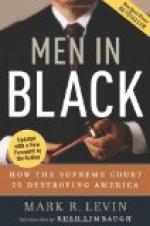On the question of time and whether the abolishing objections and letting in all evidence would not be shorter, there is much to be said. It might take less time for the witness to recount the death-bed scene of his wife’s sister’s brother-in-law’s aunt, than for the court to hear and pass upon all the objections and arguments as to the admission of the testimony on the red cow.
As the jury listen to the objections and exceptions they become more and more impatient. The restraining influence of the surroundings, the fact that they are impaneled in a box and that they are a part of, the drama keeps them silent. They cannot break out in revolt at the badgering of the witness. They can say nothing about the absurd objections that are interrupting the proceedings or the spiteful little exceptions that are being thrown in, but can only quietly store up an increasing mistrust of the whole method. When the lawyer objects so strenuously the jury thinks he must have something to conceal. Yet when the objections are made they have a certain effect which is not at first realized. A question is asked that is to the juryman perfectly sensible, but which is absolutely inadmissable under the rules of evidence. For example, the lawyer asks, “What did you tell your wife about the accident when you got home?” Any reasonable man knows that what he tells his wife is very important and bears on the question of his veracity. The other lawyer very properly objects. The jury thinks there must be something in it. The lawyer asks again, “Didn’t you tell your wife the horses were going very fast?” The other lawyer is on his feet. “I object,” he says, “and I must ask your Honor to instruct the counsel not to ask questions that are manifestly improper.” The Court rules in favor of the objecting lawyer. He admonishes the lawyer and instructs the jury to disregard the question. Yet what is the effect? The jury believes unless the lawyer thought the answer would be most unfavorable to his side he would not have objected to it so strenuously. The impression remains on the minds of the jury that there was a good deal to that question of what he told his wife.
It is for this reason that when the lawyer keeps on asking objectionable questions, the judge will sometimes declare a mistrial or allow one side to withdraw a juror, which is only a polite way of saying that the present jury in the particular case can not be fair.
Here arises one of the prettiest dilemmas of the law on the trial of a case. Suppose the case has been going on all day or for several days. The plaintiff is very anxious to have it finished. He has been at great expense and trouble to get his witness and the lawyers’ time is valued at so much per trial day. On the other hand the defendant at the worst can only have a judgment against him, which may as well happen at another time. He is willing to have the case declared a mistrial and start anew; he knows it will take a long time for the trial to come up again. It has been a dull grilling proceeding, but he does not care so long as there is a chance of postponing the judgment against him. It is on the whole better and easier to put it off.




